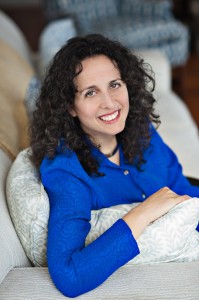
Once upon a time, a coach I know referred a client to me and–after reading a chapter–I almost told her I didn’t think I could help him. Lucky for both of us, I withheld judgement and agreed to edit one chapter.
When he sent me his second chapter, it blew me away. I laughed, I cried and I thanked my lucky stars I hadn’t turned him away. But what could explain the phenomenal leap in the quality of writing? I could only ask…
“I studied your feedback from chapter one and applied it. When I say I studied it, I mean I really studied it.”
So, what did Adam do exactly to go from something completely unpublishable to a blow-your-editor-away chapter? He put into action several tips, but the two main writing “secrets” he employed are not exactly secrets.
1). He made the writing come alive by showing, not telling and 2). He replaced most passive verbs with active ones.

Let’s talk about the second rule first. Instead of using “is,” “was,” “had,” “has,” etc., see if you can find a way to use a verb that has more energy. Passive verbs put readers to sleep and active verbs engage readers and enliven the writing.
Example: The chapter was boring. vs. The chapter bored me.
More energy in the second example, right? Easy fix, too.
Now, rule 1, which offers many more applications and subtleties. I’ll just offer a few examples of Show vs. tell.
If the reader has to fill in too many details, you’re telling. If you’re not providing input into one or more of the six (yes, six) senses, you’re telling. If you’re spoon feeding the reader a conclusion (oldest children are often bossy) rather than allowing the reader to draw that conclusion by illustrating with an example (me telling my sister she wasn’t allowed to be Mister Nobody in our pretend family), you’re telling, as well.

How do you move from telling to showing? Whether you’re writing a how-to book with anecdotes, a memoir or fiction, you can use this checklist below to get started.
- What can I show the reader to create a complete experience?
- How can I employ two or more senses in my description?
- What is one unusual detail I remember about this experience, something that is not ordinary or clichéd?
- How can I get more specific?
- What’s an example from my own work or life, or the lives of my clients/customers/patients/friends/family that illustrates the point I want to make?
- How can I help the reader draw the conclusion?
- Where can I enhance the experience with dialogue?

Ready to dive into the details?
- If you’re asking yourself, “What can I show the reader to create a complete experience?” your revision might delete the section telling the reader that you had lots of rules for how to pick a new hire, replacing it with sharing your rules and what you looked for. Don’t gloss over the details—give them to us.
- If you’re looking to employ your senses, you can ask yourself, “What did I (or the person you’re writing about) see? Hear? Smell? Taste? How might that have felt in my/his/her body? “
- How to hit upon an unusual detail? Bring yourself back to picturing the situation (or if you’re writing fiction, put yourself in the scene). Notice everything around you. What sticks out as different? A funny phrase the person says (“I’m tickled.”)? The way the person drapes their scarf? An awkward and unbalanced gait?
- Here’s an example of “How Can I Get More Specific?” Adam described his car as a mess—papers and empty beer bottles strewn about the car. First I asked, “Where were these items?” It turned out that the papers were in the front seat and the beer bottles were in the back seat, on the floor and in the trunk. As we got even more specific, we uncovered that the papers were fertility treatment instructions and lace patterns. The beer bottles were Heinekens in the back of the car and Bud Lights in the trunk. At the start of the writing, the car was a clichéd mess. After polishing the paragraph, the reader could picture the author’s hummer in all its disheveled detail. When you do this exercise on your own, give a specific detail and then see how you can get even more specific. Try this until you run out of specificity.

If you’d like more tools for polishing your writing and making it compelling, join me for Writing Magic Saturday, January 7 at 10:30 am at All That Matters Yoga and Conference Center in Wakefield, RI. We’ll learn the rules and put them into action. When you compare your writing from the beginning of class to the end, you’ll be amazed at the leap in style and impact!

